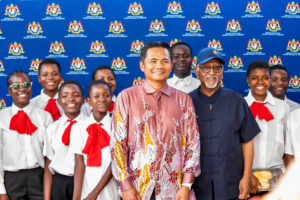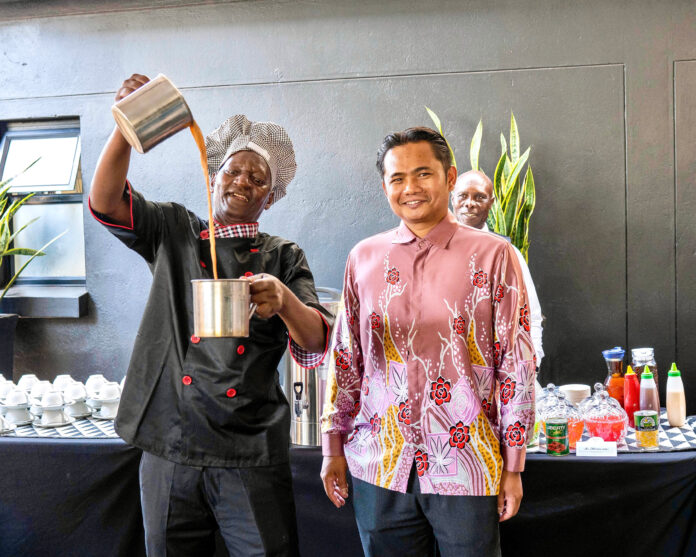By Staff Reporter
In a world where diplomacy often happens behind boardroom doors, sometimes the truest exchanges take place across a table — where stories are shared through the language of food.
At The Venue in Avondale, Harare, the aroma of coconut rice, freshly brewed coffee, and exotic fruits recently drifted through the afternoon air as the Embassy of Malaysia in Zimbabwe hosted “A Taste of Malaysia – Jom Makan.” The phrase Jom Makan, meaning “Let’s Eat!” in Malay, captures not just an invitation to dine, but an invitation to connect — to explore, and to celebrate the ties that bind people through culture.
It was an evening where the flavours of Malaysia told their own story — one of diversity, harmony, and heritage. Guests were taken on a culinary journey from the steaming bowls of Nasi Lemak, the national dish infused with coconut and spice, to the flaky Roti Canai, served with rich curry gravies, and the iconic Teh Tarik, Malaysia’s famous “pulled tea.” These dishes are more than food; they are memories from the streets of Kuala Lumpur, the markets of Penang and the family tables of Malacca — now recreated with care in Harare.
 Even the desserts carried their own poetry: Karipap (curry puffs) that whispered of Malay evenings, Kuih Keria (sweet potato doughnuts) dusted with sugar and nostalgia and Ais Kacang, a kaleidoscope of shaved ice, syrup and sweetness. And then came the much-talked-about Durian, Malaysia’s “King of Fruits,” with its strong scent and even stronger legend — a fruit that divides opinion but unites curiosity. Alongside it was golden pineapples and crisp guavas, flown in through a collaboration with Malaysia’s Federal Agricultural Marketing Authority (FAMA).
Even the desserts carried their own poetry: Karipap (curry puffs) that whispered of Malay evenings, Kuih Keria (sweet potato doughnuts) dusted with sugar and nostalgia and Ais Kacang, a kaleidoscope of shaved ice, syrup and sweetness. And then came the much-talked-about Durian, Malaysia’s “King of Fruits,” with its strong scent and even stronger legend — a fruit that divides opinion but unites curiosity. Alongside it was golden pineapples and crisp guavas, flown in through a collaboration with Malaysia’s Federal Agricultural Marketing Authority (FAMA).
Yet beyond the food, A Taste of Malaysia was also a taste of friendship.
Standing before the guests, Mr. Mohd Hail Aniff Mohd Fauzi, Malaysia’s Chargé d’Affaires a.i., spoke not only of the shared history between Malaysia and Zimbabwe but of the opportunities that lie ahead — in trade, tourism, education, and cultural exchange. His words were warm, but his message was clear: diplomacy need not always wear a suit; sometimes, it wears an apron.
He reminded guests that Malaysia’s role as Chair of ASEAN in 2025 is an extension of that same spirit of collaboration — bringing nations together through dialogue and understanding. And as Malaysia launches “Visit Malaysia 2026” campaign, Mr Fauzi extended an open invitation to Zimbabweans: to come and discover a land where heritage and modernity live side by side, where every street corner holds a story and every dish carries the warmth of home.
The afternoon’s rhythm was softened by music — as students from Dzikwa Trust sang “Standing in the Eyes of the World” and “Ewa Bulan.” Their voices, pure and confident, seemed to bridge two continents for a few minutes. It was a reminder that culture, like music and cuisine, knows no borders.
This was not the first Jom Makan event in Harare. The Malaysian Embassy has hosted the celebration before, but this year’s edition was special — more soulful, more immersive, perhaps because the world itself seems more in need of moments that bring people together. Mr. Fauzi hopes it will become an annual tradition, one that continues to nurture friendship between Malaysians and Zimbabweans, one plate at a time.

